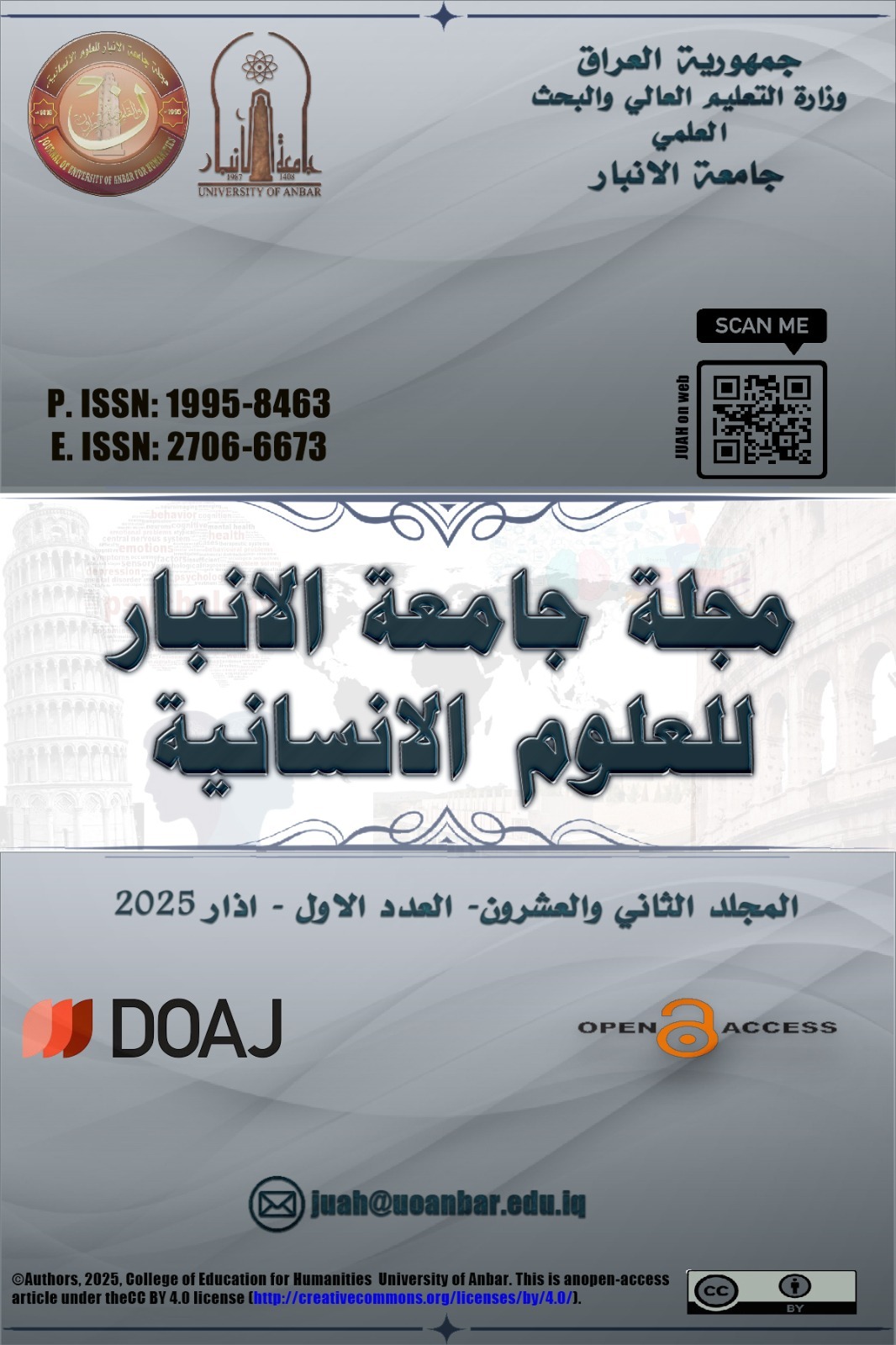Abstract
Aims: This study aimed to examine the political circumstances that led to the establishment of the monarchy in Iraq after World War I. It also aimed to investigate the role of local, regional, and international factors in the selection of Prince Faisal bin Hussein as the first king of Iraq. It also highlighted the impact of the 1920 Revolution on changing British policies and the significant role of the Dulaim tribes in granting legitimacy to the new monarchy. Methodology: The research adopted the analytical historical approach to study documents and references related to the period of British occupation (1918-1921) and analyzing the impact of the 1920 Revolution on British policies, the process of Faisal I's coronation, and the role of the tribes in it. Results: After analyzing all the data and the historical information, the results showed that after the British occupation of Iraq in 1917 and the imposition of the mandate, Britain faced widespread popular rejection, culminating in the 1920 Revolution, which forced the British government to change its policy. Therefore, Britain decided to establish a constitutional monarchy to secure its influence, so Prince Faisal I was chosen for his political experience and his role in the Great Arab Revolt. Tribal support was essential to Faisal's rule, and the Dulaim tribes played a pivotal role in pledging allegiance, which finally strengthened his legitimacy. Then, on August 23, 1921, Faisal I was proclaimed king, ushering in a new phase in the construction of the modern Iraqi state under the British influence. Conclusions: It can be concluded that the 1920 revolution forced Britain to seek an indirect system of rule. The selection of Faisal I was part of a British strategy to ensure control. Tribes, particularly those of the Dulaim, also played a key role in legitimizing the monarchy. However, Iraq remained under British influence until its full independence in 1958 .
Keywords
British occupation
Dulaim
King Faisal bin Hussein
Abstract
الأهداف: يهدف البحث إلى دراسة الظروف السياسية التي أدت إلى تأسيس النظام الملكي في العراق بعد الحرب العالمية الأولى، ودور العوامل المحلية والإقليمية والدولية في اختيار الأمير فيصل بن الحسين كأول ملك للعراق. كما يسلط الضوء على تأثير ثورة 1920 في تغيير السياسات البريطانية، وأهمية دور عشائر لواء الدليم في منح الشرعية للنظام الملكي الجديد. المنهجية: يعتمد البحث على المنهج التاريخي التحليلي لدراسة الوثائق والمصادر حول فترة الاحتلال البريطاني (1918-1921)، وتحليل تأثير ثورة العشرين على السياسات البريطانية، وعملية تنصيب فيصل الأول ودور العشائر في ذلك. النتائج: بعد الاحتلال البريطاني للعراق عام 1917 وفرض الانتداب، واجهت بريطانيا رفضًا شعبيًا واسعًا، بلغ ذروته في ثورة 1920، التي أجبرتها على تغيير نهجها. قررت بريطانيا تأسيس نظام ملكي دستوري لتأمين نفوذها، فاختارت الأمير فيصل الأول لخبرته السياسية ودوره في الثورة العربية الكبرى. كان دعم العشائر ضروريًا لتثبيت حكم فيصل، ولعبت عشائر لواء الدليم دورًا محوريًا في منحه البيعة، مما عزز شرعيته. في 23 أغسطس 1921، نُصّب فيصل الأول ملكًا، ليبدأ مرحلة جديدة في بناء الدولة العراقية الحديثة تحت النفوذ البريطاني. الاستنتاجات: أجبرت ثورة 1920 بريطانيا على البحث عن نظام حكم غير مباشر. واختيار فيصل الأول كان جزءًا من استراتيجية بريطانية لضمان السيطرة. كما لعبت العشائر، وخاصة عشائر لواء الدليم، دورًا أساسيًا في شرعنة النظام الملكي. لكن العراق بقي تحت النفوذ البريطاني حتى استقلاله التام عام 1958.
Keywords
لواء الدليم ، الملك فيصل بن الحسين ، الأحتلال البريطاني
